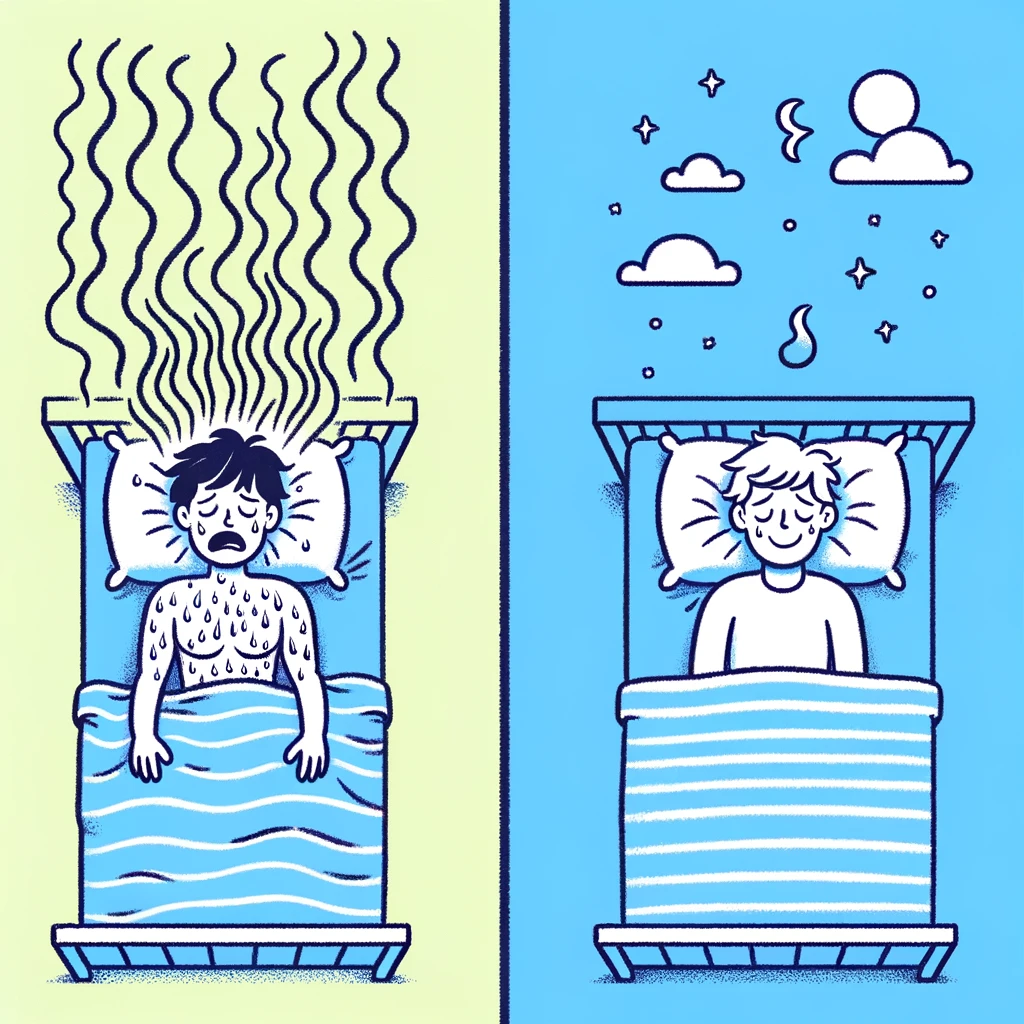For many, sleep issues are often attributed to stress, diet, or screen time, overlooking a fundamental aspect of our sleeping environment: humidity.
Yes, the amount of moisture in the air plays a pivotal role in how well you sleep, affecting both comfort and health.
Addressing the humidity in your home can lead to better sleep patterns, enhanced productivity, and overall well-being.
This article looks at the relationship between indoor humidity and sleep quality, offering insights and solutions beyond common advice.
Understanding Humidity and Sleep
The right humidity balance can be the difference between a restful slumber and a restless night.
But why does it hold such power over our sleep?
- Thick, muggy air makes it difficult for your body to cool down, leading to sweating, discomfort, and dehydration.
- Dry air can irritate your respiratory system, skin, and eyes, making it hard to stay asleep.
Optimal Humidity Levels: Experts suggest maintaining indoor humidity levels between 40% and 60%, ideal for sleep.
The Impact of Humidity on Sleep
High Humidity Woes
- Causes overheating and discomfort
- Increases the likelihood of dehydration
- Can exacerbate asthma and allergies
Low Humidity Drawbacks
- Dries out mucous membranes
- Triggers skin irritation and dry eyes
- Aggravates respiratory conditions
Achieving the Perfect Humidity Balance
Transforming your bedroom into a sleep sanctuary involves more than just the right mattress or pillow.
It requires fine-tuning your environment, starting with humidity.
To Increase Humidity:
- Use a humidifier
- Place indoor plants strategically
- Leave the bathroom door open while showering
To Decrease Humidity:
- Invest in a dehumidifier
- Ventilate your home regularly
- Use exhaust fans in high-moisture areas
Innovative Solutions for a Better Night’s Sleep
Understanding the role of humidity in sleep quality is the first step.
Implementing the right solutions tailored to your home’s needs is the next.
Here are a few additional tips to ensure your efforts bear fruit:
- Monitor humidity levels and IAQ. Use a hygrometer to keep track of indoor humidity.
- Make adjustments as needed. Be prepared to adjust your strategies with the changing seasons.
- Consider air quality in your decisions. Pair humidity control with air purifiers to tackle pollutants and allergens.
The link between indoor humidity and sleep quality is undeniable.
By taking control of the moisture levels in your home, you can enhance your sleep, health, and overall well-being.
Remember, the goal is not just to sleep but to sleep well; maintaining the right humidity is a critical piece of that puzzle.
Embrace these insights and adjustments to turn your bedroom into the optimal sleep environment.
With the right humidity levels, your nights can be more restful, and your days, consequently, more vibrant and productive.
FAQ
Yes, humidity can definitely cause sleep problems. Too much humidity makes the air feel heavy and can lead to overheating and discomfort, while too little humidity can dry out your skin and nasal passages, making it hard to sleep comfortably.
Yes, 70% humidity is too high for a bedroom. Ideal indoor humidity levels for comfortable sleep are between 30% and 50%. High humidity levels can promote the growth of mold and dust mites, adding to sleep discomfort and potential health issues.
It’s hard to sleep when it’s humid because your body struggles to cool down. The moisture in the air prevents sweat from evaporating easily, keeping your body temperature higher than ideal for sleep, leading to restlessness and discomfort.



